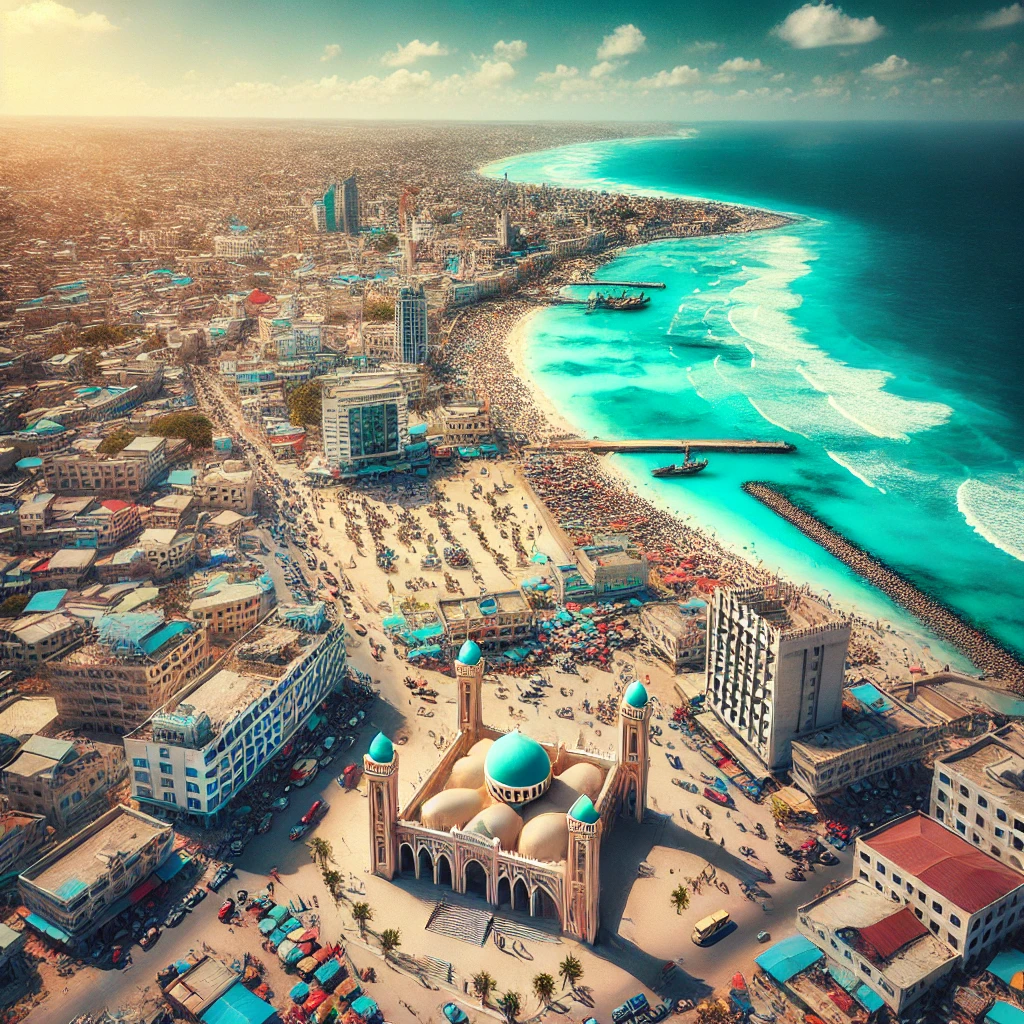Bakara Market: The Heart of Somali Commerce and Culture
Bakara Market, commonly referred to as Bakara Market, is one of the largest and most vibrant marketplaces in East Africa. Located in Mogadishu, the capital city of Somalia, this bustling market serves as a vital hub for trade, commerce, and culture. For decades, Suuqa Bakaaraha has been the lifeblood of the Somali economy, offering a wide variety of goods and services while reflecting the resilience, ingenuity, and entrepreneurial spirit of the Somali people.
The Origins and Historical Significance of Bakara market
Suuqa Bakaaraha was established in the late 1970s during a period of economic growth and urbanization in Mogadishu. Originally designed to cater to the needs of the local community, the market quickly expanded to become a central trading hub for goods from across Somalia and beyond. Its strategic location in the heart of Mogadishu made it accessible to traders and customers from all walks of life.
In its early years, Suuqa Bakaaraha was a modest marketplace where locals traded basic necessities such as food, clothing, and household items. Over time, it evolved into a sprawling market complex that now encompasses various sectors, including wholesale and retail trade, financial services, and informal markets. This transformation underscores the dynamic nature of the Somali economy and the adaptability of its people.
A Diverse Array of Goods and Services
One of the defining features of Suuqa Bakaaraha is the sheer diversity of goods and services available within its labyrinthine streets and alleyways. The market is divided into specialized sections, each catering to specific needs. For instance, the food market is a sensory delight, with vendors offering fresh fruits, vegetables, spices, and traditional Somali staples such as camel meat and anjero (a type of pancake).
The clothing and textiles section is equally vibrant, showcasing colorful fabrics, traditional Somali attire, and modern fashion. This area attracts customers from across the region, drawn by the quality and variety of products on offer. Similarly, the electronics and household goods section is a treasure trove of items ranging from mobile phones and home appliances to furniture and tools.
In addition to tangible goods, Suuqa Bakaaraha is also a hub for services. Financial transactions, including currency exchange and money transfer services, are a significant aspect of the market’s operations. Informal banking systems, such as hawala, play a crucial role in facilitating remittances from the Somali diaspora, contributing to the market’s economic vitality.
The Role of Bakara market in the Somali Economy
Suuqa Bakaaraha’s importance to the Somali economy cannot be overstated. The market serves as a primary source of livelihood for thousands of traders, vendors, and service providers. It also acts as a supply chain hub, connecting producers in rural areas with consumers in urban centers. This intricate network of trade supports economic activity across the country and fosters interdependence among Somali communities.
Moreover, Suuqa Bakaaraha plays a critical role in Somalia’s informal economy, which accounts for a significant portion of the nation’s GDP. The market’s ability to adapt to changing economic conditions and provide affordable goods has made it a lifeline for many Somali families, particularly during times of economic hardship or political instability.
Challenges and Resilience
Despite its economic significance, Suuqa Bakaaraha has faced numerous challenges over the years. The outbreak of civil war in the early 1990s brought widespread instability to Somalia, and the market was not spared from the chaos. During this period, Suuqa Bakaaraha became associated with the unregulated trade of goods, including small arms and counterfeit currency. This development tarnished the market’s reputation and highlighted the broader challenges facing the Somali economy.
In addition to security concerns, the market has grappled with issues such as overcrowding, lack of infrastructure, and inadequate sanitation. These challenges have posed risks to both vendors and customers, impacting the market’s efficiency and overall appeal.
However, the resilience of the Somali people has been evident in their efforts to overcome these obstacles. Local initiatives aimed at improving market conditions, such as community-led clean-up campaigns and infrastructure repairs, have demonstrated the collective determination to preserve Suuqa Bakaaraha as a cornerstone of Somali commerce and culture.
bakara market and Somali Culture
Beyond its economic role, Suuqa Bakaaraha is a cultural institution that reflects the essence of Somali society. The market is a microcosm of the country’s rich cultural heritage, where traditional practices and modern influences coexist. Vendors often engage in the art of haggling, a time-honored tradition that adds a dynamic and interactive element to the shopping experience.
The market is also a social space where people from diverse backgrounds come together, fostering a sense of community and shared identity. For many Somalis, a visit to Suuqa Bakaaraha is not just about purchasing goods; it is an opportunity to connect with others, exchange stories, and celebrate their cultural roots.
Modernization and the Future of the Bakara Market
As Somalia continues to rebuild and modernize, Suuqa Bakaaraha is poised to play a key role in the nation’s economic recovery. Efforts to formalize and regulate the market are underway, with the aim of enhancing its efficiency, security, and appeal. These initiatives include improving infrastructure, establishing clear zoning regulations, and promoting transparency in trade practices.
Technology is also beginning to make its mark on Suuqa Bakaaraha. Mobile payment systems, which have gained popularity in Somalia, are increasingly being adopted by vendors and customers. This shift toward digital transactions not only enhances convenience but also contributes to financial inclusion and economic growth.
Looking ahead, there is significant potential for Suuqa Bakaaraha to expand its reach and attract international attention. By leveraging its unique position as a cultural and economic hub, the market could become a destination for tourists and investors interested in experiencing Somalia’s vibrant trade and cultural heritage.
The Global Significance of bakara market
Suuqa Bakaaraha’s influence extends beyond Somalia’s borders, thanks in part to the Somali diaspora. Many members of the diaspora maintain strong ties to the market, whether through remittances, investments, or visits. These connections have helped sustain Suuqa Bakaaraha’s operations and ensure its continued relevance in a globalized economy.
Furthermore, the market serves as a powerful symbol of Somali resilience and ingenuity. Its ability to thrive despite decades of challenges is a testament to the entrepreneurial spirit and determination of the Somali people. As such, Suuqa Bakaaraha stands as a source of inspiration for other markets and communities striving to overcome adversity.
Conclusion
Bakara Market is more than just a marketplace; it is a cornerstone of Somali commerce, culture, and identity. From its humble beginnings to its status as a bustling hub of trade and activity, the market embodies the resilience and resourcefulness of the Somali people. Despite the challenges it has faced, Suuqa Bakaaraha remains a vital part of Somalia’s economic and cultural landscape.
As Somalia continues to recover and rebuild, Bakara Market’s role will undoubtedly remain central to the nation’s progress. By embracing modernization while preserving its rich cultural heritage, the market has the potential to shine as a beacon of hope and prosperity for future generations. For Somalis at home and abroad, Suuqa Bakaaraha is not just a place to buy and sell goods; it is a symbol of unity, resilience, and the enduring spirit of a nation.
This article captures the essence of Suuqa Bakaaraha, highlighting its historical significance, challenges, and potential for the future. Let me know if you’d like any adjustments or additional details!



